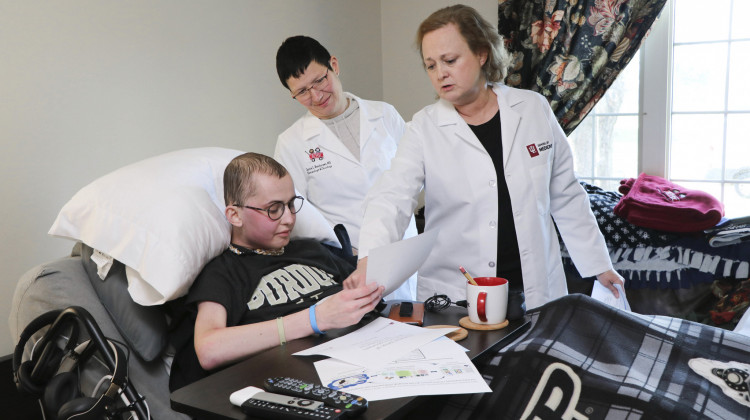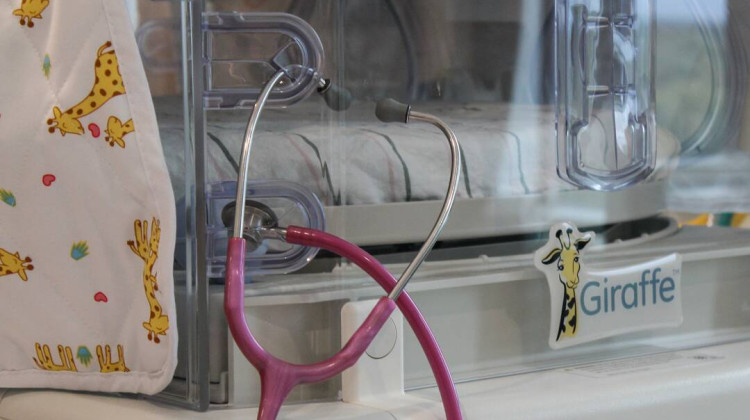
Tyler Trent speaks with Indiana University researchers at his home, one month before his death.
Christine Drury/Indiana UniversityResearchers at Indiana University have found a new therapy that significantly slows tumor growth in some cells. It was developed from cells donated by Tyler Trent, a Purdue University student with bone cancer who died last year.
The researchers found a variation in Trent’s cells that has been found in tumors that recur, called the MYC-RAD21 signature. Lead researcher Dr. Karen Pollock says there are two drugs, a Chk1 inhibitor and a bromodomain inhibitor, that can block the effect of the variation. She says her team tested each one on Trent’s cells individually and in combination.
“What we found in Tyler’s model is we can take one of these drugs, the Chk1 inhibitor or the bromodomain inhibitor, and we can administer it in models with the TT2 tumor and we get the tumors to stop growing some, compared to a control,” Pollock says. “However, when we put the two drugs together, we block the growth of these tumors substantially.”
Pollock says the therapy is tolerable for patients, but the tumor starts to grow once therapy stops.
Trent’s family says it was his idea to donate his cells for research. His mom, Kelly, says the researcher’s findings are exactly what he would have wanted.
“He thought so far beyond himself, it was not just that he wanted a cure for osteosarcoma,” she says. “He didn’t want a child to suffer, he didn’t want a family to suffer.”
READ MORE: Purdue Says Goodbye To Tyler Trent With Candlelight Vigil
Donated cells are usually kept anonymous and labeled with codes. However, the Trents approved researchers to find out which donation samples were Tyler’s so research could be done on his cells. Pollock says this makes the research different.
“It is not just working on a cell line where maybe you know a little bit about where it came from,” Pollock says. “We know everything about this case. We know when Tyler was diagnosed, we know how he was treated, how long in between the treatments.”
Pollock says next steps include better understanding of how the tumor reacts to treatment and optimizing the therapy.
Contact Darian at dbenson@wfyi.org or follow her on Twitter at @helloimdarian.
 DONATE
DONATE








 Support WFYI. We can't do it without you.
Support WFYI. We can't do it without you.